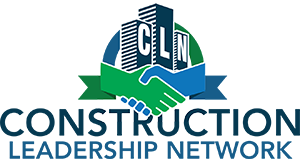
Gathering References – The Weakest Link
IHD Corp. President Leroy Hamm
The goal of using a hiring system is to gather information. Yet, one piece that I see neglected the most often is the use of references in researching the past performance of the applicant. In my years as a corporate recruiter, I found that the feedback I received from references not only added additional light on the performance of the applicant but in some cases, was directly the opposite of the impression I got in the interview. And as the founder of IHD Corporation, I have spent decades training owners, human resource managers, and hiring managers on how to ask appropriate, ethical, and legal questions. When it comes to researching references, I am often shocked at the pushback I receive.
-
“That’s illegal. No, it is not illegal.” In fact, The U.S. Congress passed a law several years ago protecting companies who offered their “opinion” about the performance of a past employee — as long as they could prove there was no “malicious intent on the part of the person giving the reference.”
Take Away: Reference Checking is a layer of protection in risk‐management, potentially saving you and your company from a disastrous hire. If you hire someone that may be a danger to your company and you can show no record of “due diligence” in your reference checking activity, you could make yourself vulnerable to a negligent hiring charge.
Just remember, keep your reference checking consistent and your questions are related to the job. If you would like some good reference checking questions, feel free to request them from Joyce Jones at [email protected].
-
“It’s a waste of time. The applicant just gives you names they know will give good references.” No, it is not a waste of time. Know what is a costly waste of time? Hiring the wrong person without checking references.
Take Away: Your records have to show you tried. A little follow-through goes a long way when it comes to hiring. At the very least, it verifies (or discounts) information provided by the applicant on their resume and in the interview. You may get “contrary” evidence from the reference.
-
“All I get is name rank and serial number, especially from the HR department.” Even if that IS all you get, then at least make sure it is consistent with the applicant’s information. Sometimes all it takes to get a personal connection is being available after traditional work time or unconventional hours.
Take Away: Start with the direct supervisor for best results with HR Departments. If you still can’t get beyond the bare minimum, enroll the applicant’s help; it is their responsibility to get you to people who can help you make a good hiring decision.
-
“We farm that out to the placement company and they give us the feedback.” You’re kidding, right? Isn’t that like the fox guarding the henhouse?
Take Away: This is one area of recruitment that should not be outsourced. Only an insider will have the insight to determine a great fit and independent insight about a job candidate’s previous on‐the‐job performance. Reference Checking also helps in the professional development of a good hire. Using the references’ comments, the applicant’s interview, and a good pre‐employment assessment will help give you additional insight on do’s and don’ts in working with them.
After 32 years of encouraging interviewers to be persistent in their efforts to pull the most essential information from references, I still find a surprising reluctance. Thorough reference checking is not only helpful but in some cases critical, this is not a place to cut corners. After all, your company’s growth and development is only as strong as your team…take the time to get to know them before you offer a seat at the table.


